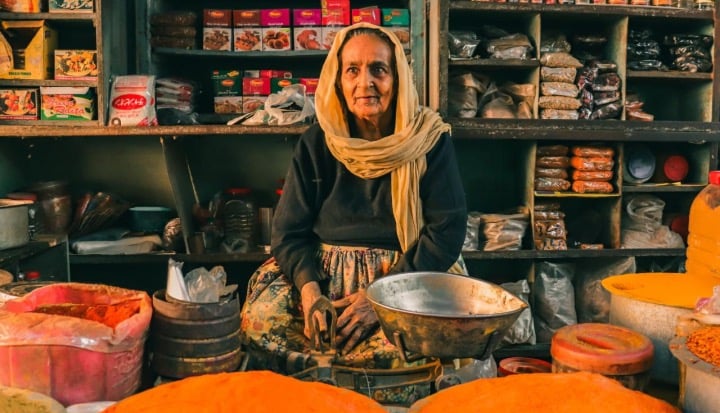The COVID-19 pandemic unleashed a wave of disruption, leaving no corner untouched. While the world focused on the health crisis, a quieter battle unfolded on the streets of Pakistan. Small and micro enterprises, the lifeblood of the nation’s economy, faced an unprecedented challenge. As we delve into the depths of their struggles, it becomes evident that the pandemic has not only eroded their financial health but also exacerbated inequalities, leaving these entities vulnerable.
Ali’s story
The ripple effects of the pandemic tested small and micro enterprises in the bustling streets of Pakistan. Let’s picture the story of Ali, a small leather workshop owner in Lahore. Ali had been running his informal business since 2016. With the help of his two employees, he managed to cover operational costs and purchase raw materials. The leftover money was sufficient to support his family. However, as Covid-19 wreaked havoc, Ali’s journey became tumultuous. The stringent lockdown measures dried up the cash flow of his workshop, orders dwindled, and bills piled up. The health crisis transcended economic boundaries, impacting Ali’s ability to provide meals for his family.
Ali’s story is not an isolated one. Countless entrepreneurs faced similar challenges during the pandemic, demonstrating remarkable resilience in the face of adversity. However, the impact of the crisis on small and micro enterprises was far from equitable. Businesses like Ali’s, already vulnerable to shocks, were left reeling due to disruptions in the supply chain, reduced orders, and the absence of government assistance. The storm pushed numerous businesses to the brink, affecting not only the entrepreneurs but also the families of their employees.
The rise of female entrepreneurs
Imagine the frantic situation where imposed restrictions halted the production cycle of these businesses. The stifling conditions of restrictions on in-person transactions led to varying experiences for many companies. Some managed to navigate the effects with their savings, while others had to shutter their doors for months. In a country where the textile and value-added leather industries thrive, the closures tell a heartbreaking tale. The textile sector faced immense challenges, with 114 entities shutting down and 38 leather workshops standing empty, leading to the cessation of their operations.
However, it’s not just about the numbers; we cannot ignore the human impact of these closures, particularly for the vulnerable segment of society, women. In a country where regressive social and cultural norms are prevalent for women, the rise of women entrepreneurs in the business world is nothing short of a miracle. These women defied norms to carve out a life for themselves, navigating challenges without adequate technical or financial support. When a catastrophe like the pandemic hits, they are left stranded. School closures and the shutdown of their informal micro-businesses created a crisis that burdened them disproportionately compared to men. Domestic responsibilities took a toll on their economic security.
Impact on SDGs achievement
The consequences this holds for Sustainable Development Goals (SDGs) for poverty reduction, equality, and gender equality go beyond the balance sheets of these businesses. It highlights the daily struggles faced by these enterprises associated with the informal sector and discriminatory practices towards women. However, amidst the chaos, there are beacons of hope. For instance, Seema, a home-based tailor in Lahore, learned to use Facebook and created a digital presence to continue her income stream.
The tales of these women entrepreneurs are stories of resilience, determination, and untapped potential. They serve as a testament to the strength of the human spirit and the transformative power of inclusive policies. Collaboration between the government, private sector entities, and academia is crucial. Raising awareness about available support schemes and resources is essential. Government agencies and educational institutions can join forces, disseminating information and providing IT and tech-related education and training to enterprises. By arming them with the skills and knowledge needed to navigate the digital landscape, we open doors of opportunity and enable them to compete on an equal footing.
About the SVSS initiative
This article is part of Southern Voice’s “State of the SDGs” initiative. It provides evidence-based analysis and recommendations to improve the delivery of Sustainable Development Goals (SDGs). As a collaborative program, it compiles a broad range of perspectives usually missing from international debates. The report aims to fill an existing knowledge gap, enriching the SDG discussions and levelling the playing field with new voices from the Global South.
This article was previously published on Southern Voice: https://southernvoice.org/weathering-covid-19-small-and-micro-businesses-in-pakistan/










